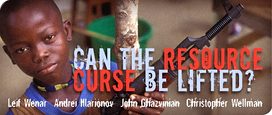The discussion of Leif Wenar’s lead essay, “We All Own Stolen Goods,” and his follow-up comment, “Living Up to Our Principles,” have clearly exposed some problems with the principles (referred to regularly in both entries, and even in the title of one of them) used as the basis for his policy proposals. I think this is a good place and time to formulate (actually, to remind us of) some principles for public policy initiatives widely shared, accepted, and tested.
Follow the procedure. The aesthetic rejection of the disgusting behavior of a dictator is a natural starting point. Nevertheless it is still far from the final stage. To arrive at the successful implementation of an exciting new idea, one needs to pass through all the necessary stages of its analysis and testing.
Inclusiveness. If we decide to punish someone for something we consider to be a crime, it is important that other actions that fit the description of the crime will also be punished. Otherwise, instead of getting a positive result, we can easily be accused of a selective approach or personal vendetta. In other words, if proposing to punish Equatorial Guinea, we must be ready to face some of the other oil-rich nations who together produce two thirds and export about 90% of the world’s oil.
Deal with reality, not myths. The so-called “resource curse” is a myth, created without sufficient basis, so the portion of the argument based on it is destined to evaporate once the author realizes its questionable status.
Presumption of innocence. If we decide to mete out punishment for a crime, it is important to be sure that we are punishing the criminals, not the innocent.
Do no harm. Economics is to some extent similar to medicine. Whatever disease an economist wants to treat, it is important that the proposed treatment would not destroy other important elements of the already working and relatively healthy body. It is important also that the suggested treatment not turn out to be worse than the disease itself. The relatively free trade enjoyed by the modern world today is a precious treasure gained through long battle. We should be very wary of sacrificing it to measures that are probably noble in intention but of doubtful efficacy.
Do not mix too many principles at once. This is not easy, since life is complicated. Humanity has never produced a unified theological/philosophical/ideological explanation of everything. Nevertheless, it is worth trying to follow this rule. Leif Wenar’s essay and his comment are unusually rich in the number of principles offered as the basis for policy prescriptions. The author began with a property rights principle that can be described as economic liberalism. Then he continues with an emphatic defense of human rights that allows us to identify this principle as civil liberalism. Extensive use of the Freedom House data for political rights of a population forces us to take him as a staunch supporter of political liberalism or democracy. But his ode to the national ownership of resources leaves it clear to the reader that we are dealing with an example of nationalism, in this case resource nationalism. It seems it may be impossible to combine all four principles in a way that does not lead to some internal contradiction. But perhaps we should not waste too much time arguing that decisions based on the application of all these principles at the same time to a particular issue must be lead to some incompatibility.
Etatism. The only solution in similar circumstances is the application of the method famously used by Alexander the Great to the Gordian Knot in Phrygia. It means the application of unrestricted force to the solution of a problem without wasting time consulting any particular principle(s). In modern terminology this principle is usually called etatism. In Leif Wenar’s language it is called the “might makes right” principle. True, it is not the most likable rule for civilized, liberal-minded people, but it was definitely the most often used rule in history. The rejection of this rule by the author in the beginning of both texts is transformed into full support by the end of both texts, where exactly this rule is used in the author’s proposals to raise trade tariffs and create government-owned funds. Surprisingly enough, the careful testing of this proposal against reality will show that it would be contrary to almost all the above-mentioned principles — economic and civil liberalism, nationalism — as well as others.
Flexibility in principles. In the case of its actual implementation — or even in the case of efforts to popularize it — such a proposal could produce more harm than good for an international economic system based on imperfect but still rather liberal principles. As an inevitable consequence, it would bring a worldwide wave of well-funded accusations against an American attempt to create, strengthen, and enforce a “traditional, selective, double-standard, American-centered, ignore-the-rest-of-the-world” approach.
This raises one question: Why?

